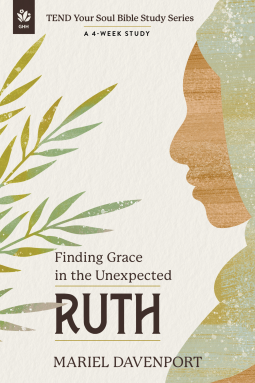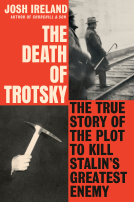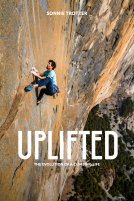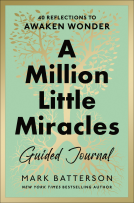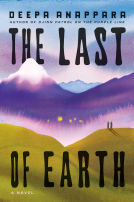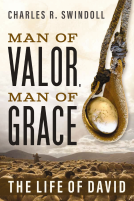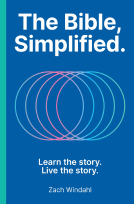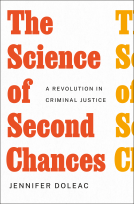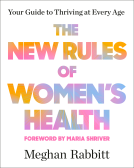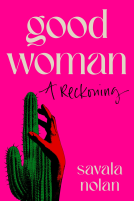Ruth
Finding Grace in the Unexpected, A 4-Week Study
by Mariel Davenport
You must sign in to see if this title is available for request. Sign In or Register Now
Send NetGalley books directly to your Kindle or Kindle app
1
To read on a Kindle or Kindle app, please add kindle@netgalley.com as an approved email address to receive files in your Amazon account. Click here for step-by-step instructions.
2
Also find your Kindle email address within your Amazon account, and enter it here.
Pub Date Oct 07 2025 | Archive Date Not set
Talking about this book? Use #Ruth #NetGalley. More hashtag tips!
Description
Discover a simple, relational Bible study method that leads to spiritual transformation!
Whether you’re new to the Bible or you’ve read it for years, this unique study encourages you to listen and respond to God through personal discovery using a guided journaling method.
Ruth: Finding Grace in the Unexpected helps you encounter the God who keeps His promises while journeying with Ruth and Naomi as they courageously put their trust in Him despite the unknown.
Perfect for individual or group study, Ruth is a four-week TEND Your Soul Bible Study. TEND is a fresh and easy four-step approach to inductive Bible study that empowers you to:
- T—take time to pray
- E—examine the Scriptures
- N—notice the lessons
- D—do what it says
With journaling pages, study tools, QR codes to video tutorials, a leader's guide, and more, this study gives you everything you need to uncover the life-changing truths of the Bible and apply Ruth’s profound meaning for yourself! Whatever your situation, like Ruth, you can find God’s limitless grace in the unexpected.
The TEND Your Soul Bible Study Series is part of the God Hears Her collection designed to bring inspiration and encouragement to women every day. Each product speaks to a woman’s heart, lifts her up, and reminds her that God is bigger than the trials she faces.
A Note From the Publisher
No Kindle edition available at this time.
Available Editions
| EDITION | Other Format |
| ISBN | 9781640704237 |
| PRICE | $12.99 (USD) |
| PAGES | 128 |
Links
Available on NetGalley
Average rating from 11 members
Featured Reviews
 Reviewer 503414
Reviewer 503414
This book was entertaining and enjoyable to read. I highly recommend it. Thank you to NetGalley and the publishers for the ARC.
Tending to plants is hard work, but the beautiful results are why we spend time caring for them, diagnosing illnesses, and working to uproot and replant as needed. Author Mariel Davenport brings this gardening metaphor to life in her study Ruth: Finding Grace in the Unexpected. She encourages readers to nurture the soil of their hearts, using lessons from the garden to help guide their approach to studying Scripture.
Mariel opens her study by reflecting on the transitions we all encounter—those moments of change that shape our lives. Some are joyful, like graduations, weddings, new jobs, travels, welcoming children, or settling into a new home. Others are far more difficult – job loss, chronic illness, losing loved ones and the enduring grief. Mariel encourages readers to anchor themselves in God, waiting with hope for His provision through every season and transition.
Part of Our Daily Bread Ministries' God Hears Her collection, Mariel's latest book is part of her online “TEND Your Soul Bible Study” series. She introduces her “TEND” method, an approach to studying the Bible, to guide readers through a study of the book of Ruth—a favorite of hers. Throughout Scripture, Mariel said the people we meet often reveal attributes of God: His kindness, faithfulness, and mercy.
Mariel’s study spans all four chapters of Ruth, structured to be completed over four sessions. Each of five days' study focuses on a concise passage, guiding readers through her TEND method step by step. The sixth day is one for reflection, and Mariel offers space to journal and contemplate the lessons learned each week.
What’s the Story?
Mariel said she became a Christian after reading Genesis in a Bible her coworker gave her. She said she peppered her coworker with questions as she read about these dysfunctional people of Genesis with their imperfect faith. When she first became a Christian, she saw in Ruth a role model of what a godly woman looks like “surrendered to God’s will for her life.”
If you are not familiar with the story of Ruth, let me give you a quick synopsis. Moab, a city 70 miles away from Bethlehem, had been named for the son of Lot and his oldest daughter. The child grew into a pagan man who served a false god, Chemosh. Elimelech, a wealthy man from the tribe of Judah, moved his family to Moab to escape famine in Bethlehem. He and Naomi had two sickly sons, Mahlon and Chilion, who married Moabite women, Orpah and Ruth. When her husband and sons died, Naomi told her daughters-in-law, Orpah and Ruth, to return to their families. Orpah reluctantly did so, but Ruth clung to Naomi and refused to leave her. She said in Ruth 1:16,
“…Whither thou goest, I will go; and where thou lodgest, I will lodge: thy people shall be my people, and thy God, my God.”
The women set out for Bethlehem. In her distress, Naomi wished to change her name to Mara. A bitter root started to grow in her heart's soil. She thought that this was the end of the road, the end of God’s blessing. But little did she know she had a divine assignment.
The women arrived during harvest. Ruth asked if she might glean from a field she saw servants were harvesting. (Leviticus 19:9-10 explains laws surrounding this Jewish custom.) This field belonged to someone from the clan of Elimelech named Boaz. Boaz’ mother Rahab, like Ruth, had been a foreigner who put her trust in Yahweh. Boaz asked his men about Ruth and learned what she had done for her mother-in-law. She found favor in his eyes, and he told the men to leave behind more for Ruth. He wanted to protect her, so he told her to follow his women working the field. She ate at his table, too, and he commanded the men not to touch her. Boaz watched over her.
When Naomi heard about Boaz’s kindness, she recognized this relative of her husband’s. “The Lord bless him,” Naomi said to Ruth. “He has not stopped showing His kindness to the living and the dead.” She added, “That man is our close relative; he is one of our guardian-redeemers.” A kinsman-redeemer is a next of kin willing and able to help a relative in need. Naomi turned her focus to securing a husband for Ruth.
Redemption requires sacrifice, Mariel said. Boaz selflessly agreed to marry Ruth and supply the line of Elimelech with an heir. The story of Ruth is a story of redemption and restoration. She wants readers to ask God what area of their lives He is working to redeem for them.
Mariel noted that, depending on the translation, the book of Ruth sometimes appears right after Proverbs in the Bible. She observed that the same word that describes Ruth is the same as the word that describes the Proverbs 31 woman: the Hebrew word “Chayil (חַיִל),” meaning valor. (See Proverbs 31:10-31.) In English Bibles, Ruth is typically placed after Judges in historical order. Mariel pointed out that during the time of the Judges, “everyone did what was right in their own eyes,” not according to God’s ways. Ruth’s story is set in this turbulent era, and her attitude stands out as radically different. It’s clear why Mariel views Ruth as an inspiring role model and mentor for faith.
Ruth and Boaz marry and have Obed, who we read about in Jesus’ ancestry mentioned in Matthew 1:5-6. You will notice in Matthew 1 both Rahab, Boaz' mother, and Ruth, Obed's mother, are listed in the genealogy of Jesus Christ.
The women of Bethlehem praise the Lord when Obed is born. They said,
“Praise the Lord, who has now provided a redeemer for your family! May this child be famous in Israel. May he restore your youth and care for you in your old age. For he is the son of your daughter-in-law who loves you and has been better to you than seven sons!”
Mariel gives some historical context, definitions for Hebrew words, as well as her own insights about the metanarrative of the book of Ruth. She tells readers how this Ruth's story connects to God’s grand divine one of restoration and redemption through His Son. He works behind the scenes as He leads Naomi and Ruth to a place of hope and protection.
In this four-week study, Mariel also introduces readers to her TEND method of Bible study. The “T” reminds us to “Take time to pray,” asking the Holy Spirit to guide our reading. “E” encourages us to “Examine the Scriptures” in their proper context, keeping the original audience in mind. Like a writer, she wants us to pay attention to the author’s grammar and word choices. “N” is to “Notice the lessons.” Mariel asks, “What lessons does the writer teach to the first audience? What do we learn about God in these passages?” Finally, “D” means “Do what the Word says.” (James 1:21-22) Respond and apply what we learn.
Some ways we can respond, Mariel said, is to confess and repent of sin, send an apology or offer encouragement to someone as the Spirit leads. Our quiet times with God will root out those weeds that want to hinder our growth. Also, share the lessons learned so that we build others up in Christ Jesus. By tending to our souls in this way, Mariel invites us to let God’s Word bear fruit in our daily lives.
I previously wrote a review of Max Lucado’s new book, Tame Your Thoughts, and his words returned to me as I read Mariel’s study. God’s Word is a sword, as Hebrews 4:12 tells us - “the Word of God is alive and active. Sharper than any double-edged sword, it penetrates even to dividing soul and spirit, joints and marrow; it judges the thoughts and attitudes of the heart.” Mariel said reading and applying God’s Word will make us less vulnerable to the enemy’s darts and flames when we spend time tending our souls. Max would say to take them to Jesus in my situation room and ask for His guidance. He will show me how to use God’s Word to extinguish each flaming dart just as He did in Matthew 4 when that same enemy tempted Him in the wilderness.
Mariel offers valuable historical context, explains Hebrew terms, and shares her personal reflections on the central themes in Ruth. She shows readers how Ruth’s journey is woven into God’s metanarrative of redemption and restoration fulfilled through His Son, Jesus Christ. God works in the background of the story, leading Naomi and Ruth to safety, hope, and purpose. In similar fashion, Naomi gently directs Ruth toward rest and hope through Boaz, the kinsman-redeemer. In many ways, Ruth’s quest for refuge echoes the Christian desire to find shelter and relationship with God through Christ.
What I Liked
I appreciated the short length of this easy to read and understand study. Thank you, Mariel! In the last year, I have completed three Bible studies with pages of homework. I felt bad when I did not finish before class time. The TEND method gives a pattern for me to follow as I study God's Word. This acronym reminded me of another based on the Lord's Prayer that has helped me in my prayer time: PRAY, or Praise, Repent, Ask, and Yield.
I enjoyed mining the Scripture for things like grammatical structure, repeated words or key phrases. Just as Courtney Doctor said in her study on Romans, Mariel reminds us the Bible is for us but not written to us. We need to read passages in with this in mind so we don't read out of context. Mariel asked questions like, “What do the verses tell us about God?” “Is there a sin, a promise, action, command, or example to follow or not follow?” Mariel’s study guide includes pages for journaling and QR codes that take you to video tutorials, the leader’s guide, and additional tools for personal or group study. She includes a bibliography of resources to help Christians become better Bible students, such as Joseph Benson’s Commentary on the Old and New Testaments, Holman Illustrated Bible Dictionary, IVP Bible Background Commentary, and The Wiersbe Bible Commentaries for Old and New Testament.
I’ve found myself naturally applying this method to my Today in the Word study. But I think I do the TEN in my Bible study time, but I don't readily know how to apply the Word, or "D – Do what it says." But after much thought, I decided the “D” might best be interpreted as a Divine Assignment.
Mariel has readers write out verses each day, and I confess I skipped hand-writing them. I do think this beneficial. I remembered a chaplain who told me he would write out a verse 10 times to commit it to memory. Writing out another's words means you are paying attention to every detail. But pain demands workarounds. If you have arthritis or fibromyalgia like me, you could underline, circle, or bracket things in your Bible. I like to do this as I read, so I revisit what I learned the next time I engage with the text. I see the benefits, but I don't think I missed anything by not writing out the words onto paper.
I learned about Jewish customs and how God used them for His larger purpose and plan. Boaz first asks a nearer redeemer, or Go’el (גואל) if he will redeem the land of Naomi/Elimelech, and the man agrees until he learns he must marry Ruth “in order to perpetuate the name of the dead in his inheritance” (Ruth 4:5) But the man doesn’t wish to marry Ruth and impair his own inheritance. He did not know, of course, that he had a chance to be in the lineage of Jesus the Messiah.
Some of the lessons about Naomi and Ruth resonated with me. Mariel noted that widows like Naomi and childless women like Ruth were vulnerable in their culture. They were forgotten and not seen as having value. But God saw both women, and He wasn’t done blessing Naomi with good things. He used their story to speak to Israel and the words to them apply to us. Mariel wanted me to notice the repetition of words telling His beloved to return to Him, to turn back, to allow Him to restore what they had lost. Mariel points out other key words repeated: come, keep close, return, and cling.
Another insight I gleaned is the fact that Christians sometimes believe blessings for others and not themselves. Naomi blesses her daughters-in-law at the beginning of the story. She asks that God deal kindly with them. Mariel said the writer used the Hebrew word “hesed” for “kindly.” Hesed is “loyal and covenantal love.” She believed for others what she didn’t believe for herself. Mariel asked whether we sometimes believe blessings will happen for others but not us – guilty!
Ruth is a great role model for us as women. She turned her back on Moab and their pagan worship in favor of worshipping Yahweh. And the God of Israel moved in her life. He blessed Ruth for her loyal love toward Naomi. She is part of His overarching covenantal story. Her son Obed (meaning “servant” and “worshipper”) restored Naomi’s family heritage and became part of the royal genealogy of King David and King Jesus.
I had to stop using this book before it ruined the Book of Ruth for me. The study started in a very condemning way- page 17 “We have all walked through seasons of choosing our own way over Gods way”. Such a huge generalisation. I much preferred the second sentence “It can be difficult to differentiate the voice of self, over the voice of God”
There are other aspects I didn’t enjoy. Overall I just thought it could have been filled with much more grace.
Overall the book assumes a position of righteousness and lessons that should be learnt. It is based on the premise that if you do a then b will happen.
Newsflash - there is plenty of righteous suffering in the bible.
I loved Naomi’s courage in blaming God for her circumstances. The courage to admit pain and disappointment and lay it before God is something that can be done as part of a relationship with God. It is very human and can be seen in the psalms. Humans crying out to God because of the pain and suffering they are experiencing. It gives us courage to do the same in the face of tragedy.
Ruth for me is a book that abounds in grace and I found that lacking in this bible study. I didn’t share this review in my normal places because others might find this guide helpful.
This is a very good and interesting bible study of Ruth which is not talked about enough!! I feel like could be more interesting things to talk about it I bribe it’s a decent bible study
 Kayleigh P, Reviewer
Kayleigh P, Reviewer
This will definitely be better as a physical book, as it prompts you to write in it the verses of the bible that it wants you to focus on. But if you have this as an e-book you can use a tablet or notebook to go through this as it intends.
I think it would be better if the verses were included (with the translation version used) as you can't use this as a book on it's own given that you'll need your bible too.
The "tending tools" are really good, they tend to give some good context or highlight something that you may not have already known (especially if it's your first time reading Ruth).
And the prompts for what to notice and how to take the learnings into your life sometimes seem a bit repetitive, but they are still very good at getting you to reflect deeply and try to implement everything.
The actual TEND method is a good way to focus on your bible studies and I have found this book incredibly useful.
 Reviewer 921057
Reviewer 921057
I really enjoyed this workbook. Ruth: Finding Grace in the Unexpected is simple in the best way—it’s approachable, heartfelt, and makes you slow down and actually connect with what you’re reading. The TEND method (Take time to pray, Examine, Notice, Do) keeps things clear and personal without feeling overwhelming.
I loved how it encouraged reflection rather than just filling in blanks. The journaling pages was a nice touch, and the structure made it easy to use alone or with a group. The study does a beautiful job showing how God’s grace works even in uncertainty, and Ruth’s story feels especially comforting when life feels unpredictable.
 Allison W, Reviewer
Allison W, Reviewer
This book was a very in depth dive into Ruth. I love how it leaves me thinking and allowing myself to put in extra thought to the readings. I love when books encourage deeper thinking, it helps me stay engaged and look forward to reading it again.
I really appreciated the space to write out Scripture I think that's very important and while the tools section didn't offer anything groundbreaking if you have a study Bible or commentary they would be very helpful and necessary If you didn't.
The story of Ruth begins with emptiness — a famine, a funeral, a foreign land. Yet in the middle of heartbreak, God’s grace quietly takes root. This Bible study, Ruth: Finding Grace in the Unexpected, walks through those tender chapters of grief and renewal, showing how God redeems what feels lost and how His faithfulness meets us in the most unlikely places.
ree
Ruth: Finding Grace in the Unexpected by Mariel Davenport | Book Review
Content
Purpose of the Book
Table of Contents
Summary
My Take
My Recommendation
Quick Stats
More Like This
Favourite Verses from Ruth
Want More Books?
Content
Purpose of the Book
In this book, Mariel takes us through the book of Ruth to reveal a woman of godly character who inspires us to live patiently before God, trusting His love.
Table of Contents
Introduction
Setting the Context
Week 1 - Returning to God, Ruth 1
Week 2 - Learning to Stay, Ruth 2
Week 3 - An Active Pursuit of Rest, Ruth 3
Week 4 - Redemption, Ruth 4
A Closing Thought
ree
Summary
This is a 4 week study through the book of Ruth. The book has ample space for journaling and writing out notes and prayers.
In the introduction you’ll find her testimony and how she developed a love for studying God’s Word. She also outlines the TEND method, which she uses through the study to point us to be both hear-ers and do-ers of the Word.
T - Take time to Pray
E - Examine the Scriptures
N - Notice the Lessons
D - Do What it Says
In setting the context, she highlights the genre, the who, what, when, and themes throughout the book of Ruth, highlighting Scriptures metanarrative of Creation-Fall-Redemption-Consummation.
Each week of study is broken up into 6 day segments where she takes the portion of verses and applies the TEND framework, along with “Tending Tools” along the way where she adds insight and questions from commentaries and original languages to deepen our reflection.
ree
My Take
In Ruth: Finding Grace in the Unexpected, I’m reminded that faithfulness is rarely flashy. It often looks like showing up for the people God has placed in our care, choosing obedience when no one else is watching, and trusting God’s unseen hand in the details.
Ruth’s quiet courage and Boaz’s steady integrity stand out even more when we remember the time in which they lived—an age when “everyone did what was right in their own eyes” (Jud. 21:25). Yet through their ordinary obedience, God’s extraordinary grace unfolded.
As I consider my own life, I see how easy it is to overlook faithfulness in the small things—kindness offered when I’m tired, diligence when no one notices, a prayer whispered in the middle of laundry or work. But this is where God often writes His redemption story.
As the Bible Knowledge Commentary puts it, “The Lord is faithful in His business of loving, superintending, and providentially caring for His people. God’s people should also be about His business in the ordinary activities of daily living” (p.47). That reminder turns my attention again to the quiet beauty of obedience—where His grace meets our faithfulness in the everyday.
In what ordinary places might God be calling you to quiet faithfulness today?
My Recommendation
If you’re looking for a bible study that’s a perfect balance between reflection and study, you will enjoy this new series! I loved the space to journal.
You’ll find more from Mariel on her Substack with links to her podcast and online studies.
Quick Stats
# of Pages: 128 pages
Level of Difficulty: Easy
My Rating: 5 stars
Thanks to Netgalley and the publisher for the complimentary copy and the opportunity to share an honest review!
 Ronja S, Reviewer
Ronja S, Reviewer
I found that this study of the book of Ruth truly was simple, yet in the best way. I liked that the daily study time involved writing out the passage yourself -- this is a great way to notice better what the Scripture says but also to remember more about the daily passage. All in all, this was simple yet encouraging and had added insights which were great.
